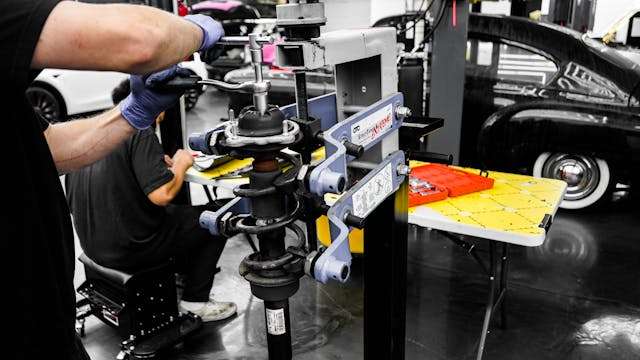
The automotive industry has always been at the forefront of technological innovation, constantly evolving to meet the demands of modern consumers and the challenges of the 21st century. In this digital era, one of the most significant shifts has been the integration of advanced computing solutions into automotive manufacturing and maintenance processes. These sophisticated systems, characterized by their ruggedness and high-performance capabilities, are pivotal in enhancing automotive operations’ efficiency, precision, and reliability.
The Role of Advanced Computing in Automotive Manufacturing
Advanced computing has transformed automotive manufacturing, making processes faster and more innovative. It plays a crucial role, especially in the crucial stages of design and simulation.
Design and Simulation
At the heart of automotive innovation lies the design and simulation phase, where ideas are born and refined. High-performance computing solutions enable engineers to create detailed models and simulate performance under various conditions. This process ensures that new vehicles offer improved aerodynamics, enhanced safety features, and better fuel efficiency, all while speeding up the time it takes to move from concept to production.
Assembly Line Automation
The assembly line is where the rubber meets the road in vehicle manufacturing. Rugged computers are critical in automating processes, from welding and painting to assembling intricate electrical systems. These durable machines operate seamlessly in the demanding factory environment, minimizing human error and improving production speed and consistency.
Quality Control and Testing
Before a vehicle can hit the road, it must undergo rigorous quality control and testing. Advanced computing systems inspect and test every aspect of a vehicle, from engine performance to safety features. This meticulous process ensures that every car, truck, or motorcycle meets the industry’s stringent safety standards, guaranteeing the reliability that consumers expect.
Enhancing Automotive Maintenance with Technology
The transition to technology-enhanced maintenance marks a significant leap forward for the automotive industry. By leveraging the power of advanced computing, diagnostic systems have become more sophisticated, allowing quicker and more accurate troubleshooting.
Diagnostic Systems
The maintenance of modern vehicles relies heavily on sophisticated diagnostic systems. These systems, powered by high-performance computers, can quickly and accurately identify issues, making maintenance more efficient and less time-consuming. This precision not only improves the reliability of vehicles but also extends their lifespan, providing significant value to owners.
Predictive Maintenance
With data analytics and machine learning, predictive maintenance has become a reality. By analyzing vast amounts of data, these advanced computing solutions can predict when a vehicle will require maintenance before a breakdown occurs. This proactive approach reduces unexpected downtime and repair costs, significantly improving the ownership experience.
Integration with IoT Devices
Integrating computing solutions with Internet of Things (IoT) devices has opened up new real-time monitoring and maintenance possibilities. These connected systems provide continuous updates on vehicle health, allowing immediate response to any issues and enhancing overall vehicle performance and safety.
Challenges and Solutions in Automotive Computing
Navigating the challenges presented by automotive computing requires robust solutions tailored to the demanding conditions of the industry.
Harsh Environmental Conditions
One of the primary challenges in automotive computing is the need for systems that can operate reliably in harsh environmental conditions, including extreme temperatures, vibration, and dust. Rugged computers are specifically designed to withstand these challenges, ensuring continuous operation without failure.
Data Security
As automotive systems become more connected, the importance of data security cannot be overstated. Advanced computing solutions in the automotive industry are equipped with robust security measures to protect sensitive information from cyber threats, ensuring the safety and privacy of vehicle data.
Future Trends in Automotive Computing
The automotive industry is set to witness an increased integration of AI and machine learning into its manufacturing and maintenance processes. These technologies will drive further improvements in efficiency, safety, and sustainability. As vehicles become more autonomous and connected, the role of advanced computing solutions in ensuring these technologies operate flawlessly will become even more critical.
Advanced computing solutions have revolutionized how we manufacture and maintain vehicles, offering unprecedented efficiency, precision, and reliability. The integration of rugged, high-performance computers has been instrumental in meeting the challenges of modern automotive processes. As we look to the future, it is clear that the role of technology in the automotive industry will only continue to grow, promising even more significant advancements in vehicle performance, safety, and sustainability. The ongoing evolution of automotive technology heralds a bright future for manufacturers, maintenance professionals, and consumers, driving us toward a more efficient, reliable, and innovative automotive landscape.